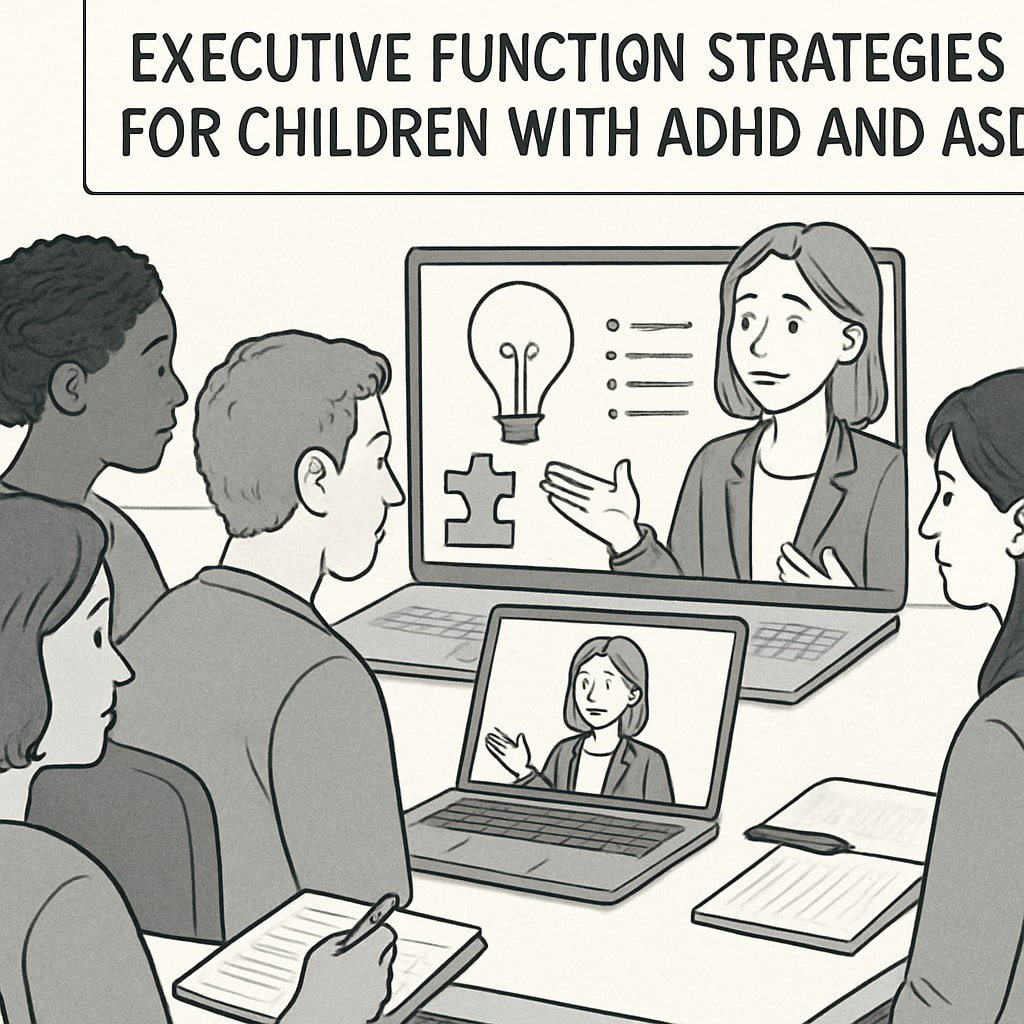For parents of children with ADHD (Attention Deficit Hyperactivity Disorder), ASD (Autism Spectrum Disorder), and 2e (twice-exceptional learners), navigating the complexities of special education can be both challenging and rewarding. The 7th Annual Back-to-School Online Summit has emerged as a vital resource for families seeking actionable executive function strategies to support their children in mainstream educational environments. From tools designed for emotional regulation to techniques for time management, these strategies are reshaping the educational landscape for special needs children.

Understanding Executive Function and Its Role in Special Education
Executive function refers to the set of mental skills that include working memory, flexible thinking, and self-control. These skills are essential for managing daily tasks, focusing on goals, and maintaining emotional balance. For children with ADHD, ASD, or 2e traits, deficits in executive function often create hurdles in academic and social settings. However, with targeted strategies, parents and educators can help these children overcome challenges and thrive.
For example, tools such as visual schedules, checklists, and structured routines have proven effective in enhancing time management and organizational skills. Emotional regulation techniques, such as mindfulness exercises and stress-reduction strategies, can further support these children in navigating high-pressure situations. As a result, executive function strategies have become a cornerstone of modern special education practices.
Key Takeaways from the Back-to-School Online Summit
The 7th Annual Back-to-School Online Summit brought together experts, educators, and parents to discuss innovative approaches to supporting children with ADHD, ASD, and 2e characteristics. Some of the key strategies presented during the summit include:
- Time Management Skills: Introducing tools like timers and color-coded planners to help children break down tasks into manageable steps.
- Emotional Regulation: Utilizing breathing exercises and visual aids to help children identify and manage emotions effectively.
- Social Interaction Training: Incorporating role-playing scenarios and peer mentoring programs to improve social skills.
- Parent Support Networks: Establishing communities where parents can share experiences, resources, and encouragement.
These strategies not only empower children but also equip parents with the confidence and tools needed to advocate for their child’s success in mainstream educational settings.

The Broader Impact on Mainstream Education
As more schools and educators adopt executive function strategies, the inclusion of special needs children in mainstream classrooms becomes increasingly feasible. This shift highlights the importance of tailored support systems that address individual needs while fostering a sense of community. For example, schools that implement executive function training often see improvements not only in the academic performance of special needs students but also in their peers’ understanding and empathy.
Furthermore, the broader adoption of these strategies demonstrates a commitment to equity in education. By providing resources that cater to diverse learning styles, educators and parents can help bridge gaps and ensure that every child has the opportunity to succeed.
Readability guidance: Use concise paragraphs, incorporate lists for clarity, and distribute transitional phrases evenly throughout the text. Focus on practical strategies that resonate with parents and educators while maintaining a professional tone.


